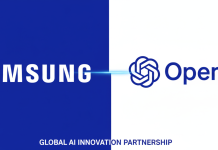OpenAI is making significant strides in the AI landscape, positioning itself at the forefront of agentic AI. With the recent release of ChatGPT desktop apps for Mac and Windows, the company is reimagining how AI can integrate into daily workflows. This evolution signifies a shift from a mere conversational assistant to an agentic tool capable of completing tasks and collaborating seamlessly across your desktop environment.
Advancing ChatGPT’s Desktop Capabilities
On the eleventh day of the “12 Days of OpenAI,” the company highlighted its efforts in advancing ChatGPT’s usability on desktop platforms. The new desktop apps are designed to streamline interactions with popular software like Apple Notes, Notion, Warp, Xcode, and over 30 additional applications.
In a live demo, OpenAI showcased how ChatGPT seamlessly collaborates with Notion by fetching content from a document section and generating additional, relevant material. Similarly, ChatGPT was demonstrated analyzing Git comments in Warp, presenting the results visually in a holiday-themed bar graph. The demo also revealed ChatGPT’s integration with macOS accessibility APIs in Xcode, reinforcing its potential as a robust development companion.
Voice Mode Integration
A key feature unveiled alongside the desktop apps is Advanced Voice Mode. This innovative capability allows ChatGPT to execute tasks based on voice commands, making it an even more powerful assistant for multitasking professionals. From drafting emails to generating code snippets, ChatGPT’s voice-based functionality ensures a smoother, hands-free experience.
AGI Easter Eggs Hint at Future Developments
Amid these announcements, OpenAI dropped intriguing hints about its long-term ambitions in artificial general intelligence (AGI). During the Xcode demo, a file named “AGI_Interface.swift” caught the attention of keen observers, suggesting ongoing developments in this area.
This isn’t the first AGI-related teaser during the “12 Days of OpenAI.” Earlier, a calendar event titled “Super Secret AGI” added to speculation that the company is paving the way for significant AGI breakthroughs.
Introducing the Future: OpenAI’s New Agent
OpenAI also confirmed plans to launch a new AI agent in 2025. Although details remain sparse, reports hint at a project codenamed “Operator.” This forthcoming agent is expected to expand ChatGPT’s agentic capabilities significantly, aligning with OpenAI’s vision of empowering users with tools that can proactively take action and make decisions.
The Competitive Landscape
OpenAI’s advancements arrive amidst fierce competition. Google’s Project Mariner promises to navigate and perform actions within web browser tabs, while Microsoft’s Copilot Vision offers similar capabilities for desktop applications. Anthropic’s Computer Use, an AI tool designed for task execution, also raises the stakes in this burgeoning field.
Despite this competitive pressure, OpenAI’s comprehensive approach—integrating voice commands, app interoperability, and agentic control—positions it uniquely in the market.
What Lies Ahead
With only one day left in the “12 Days of OpenAI,” anticipation is building for the final announcement. Industry insiders speculate that OpenAI might unveil a new frontier model that surpasses the recently launched o1 model in performance and versatility. Early benchmarks suggest that o1 already outpaces competitors like Claude 3.5 Sonnet in coding tasks.
In recent weeks, users have spotted previews of GPT-4.5, sparking speculation about its capabilities. Whether this model—or an even more advanced system—will be part of OpenAI’s finale remains to be seen.
Looking Back on a Transformative Series
The “12 Days of OpenAI” has been packed with significant developments. From launching the o1 model with function calls and reasoning controls to introducing Projects and WhatsApp integration, OpenAI has consistently demonstrated its commitment to innovation. While competitors like Google and Microsoft have responded swiftly with advancements like Veo 2 and Gemini 2.0 Flash Thinking, OpenAI’s focus on agentic AI gives it a strategic edge.
Conclusion
OpenAI’s latest announcements underscore its dedication to creating agentic AI tools that seamlessly integrate into users’ workflows. With desktop apps for Mac and Windows, enhanced voice capabilities, and tantalizing hints at future AGI developments, OpenAI is redefining what AI can achieve. As the “12 Days of OpenAI” draws to a close, the tech world eagerly awaits the company’s next groundbreaking move.













